Damien Dempsey talks history, republicanism, drugs and the social injustices he’s sung about for 15 years with Philip Cummins...
The build of a heavyweight champ, the heart of a saint, the soul of a gritty street poet; Despite his connection and understanding of his hometown, Damien Dempsey isn’t your average Dubliner.
The Donaghmede native – who has lived for spells in New York and Kilburn – darkens the door of the Library Bar on Dublin’s Exchequer Street, his 6ft 2 inches frame clad entirely in black, save for a sandy-colored flat cap.
Dempsey conducts himself like a pro and pleasantries are exchanged ahead of what is his first interview in an afternoon of press in support of both his upcoming Best Of compilation, which collections 15 years of highlights.
Softly-spoken and considered, Dempsey’s pregnant pauses on some lines of questioning offer an insight into a man who understands the responsibility of his position as a socially conscious singer-songwriter who has, over 15 years, cast solid reflection over Irish life.
I’d like to ask you, firstly, about your producer and manager John Reynolds, who’s perhaps best known for his work with Sinead O’Connor. John’s been on this 15-year journey with you. When did you first meet and how was it that you hit it off?
I met him at a house party in London. I was doing a gig in London supporting The Hothouse Flowers in Shepherds Bush Empire in 1999. It’s gonna be great to be going there and doing my own show. It’ll be like the 33rd county, that night!
Anyways, I went to a house party afterwards with Fiachna Ó Braonáin from the Hothouse Flowers. I didn’t know anyone there, so I just stayed in the kitchen. You go to a house party, where I’m from, you put beer in the fridge... it’s gone!!! People on the rob!
So I just stayed in the kitchen keeping an eye on the beers. And you always get a good chat in the kitchen; you’ve got a bit of quiet away from everything else that’s going on in living room. John was in the kitchen cooking up food and we just got chatting away.
He said to me: ‘I’ve got a little studio upstairs’ and he brought me up. It was in his bedroom. I had no idea that he was such a great drummer or that he had produced some of Sinéad O’Connor’s big records; he never said it to me.
I think I was in the Shepherds Bush Empire again the next night and he said that he was going to come down and take a look at me. He came down and, afterwards, I asked him what he thought of the show. “The sound wasn’t great,” he said. He said he asked the sound-man to turn it up a bit, but the sound-man wasn’t even at the desk; some of them care, some of them are arseholes.
So the same night, the Flowers were staying at the Columbia Hotel, so we all went down there. I remember John Hurt and all was there and a few other heads. The guitar was going round and someone said ‘here, give it over to this fella: give him a shout’.
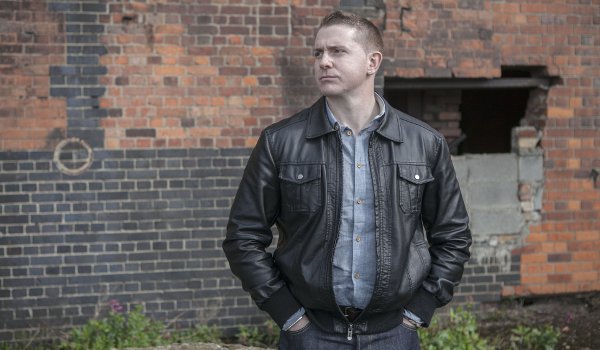 Dempsey will play on several dates across England this month
Dempsey will play on several dates across England this monthAnd we sang and the whole room stopped and all; John saw me then and thought ‘wow...that’s it’. I didn’t meet him much, then, during that night, but it was during that night that he heard me properly and he thought: ‘Jesus...this guy’s got something.’
I went back to Dublin and, about a month later, John gave me a call out of the blue. I heard this cockney accent on the phone and thought... what the fuck? ‘It’s John, from London. Y’know, from the house party?’ I thought ‘what the fuck is he doing ringing me (laughs)?’
I thought ‘has something been robbed from the house and does he reckon it was me?!!!’ He goes on, anyways: ‘Listen, I was just wondering if you’d like to come over to my bedroom studio in London and lay down some tracks?’
So I went over. I didn’t realize he was the producer that he was and that he had worked with so many big names; I just thought that it was a part-time thing for him. I had nothing else going on, so I went over, stayed for a week and just put stuff down; whatever good songs I had at that time.
At that time were the songs coming out thick and fast?
Yep, absolutely. I had a glut of songs; about 26, 27 in all. I only had one record out, They Don’t Teach This Shit in School, so I had a load of other songs waiting to go. I stuck down my strongest songs, he thought they were brilliant and he went mad over them.
I left the songs with him and he said, ‘leave them with me and I’ll see what I can do with them; let me work on them.’ He sent me on a CD with Sinead O’Connor, Brian Eno, Caroline Dale, Claire Kenny and all playing over it and when I heard it, I was crying. I couldn’t believe what he’d done with the songs.
There’s a massive leap in the sound of that second record...
You’re right; there is definitely a leap in terms of sound. And the voice, too; John really brought my voice up. The voice on the first album is a bit dull and muffled. The headphone mix wasn’t right. I was so shy in the studio that I couldn’t hear what they were doing.
I didn’t have the balls to say, ‘I’m not singing anymore until I can hear myself’. I didn’t know to keep one part of the headphone on the ear and the other off the ear so that I could hear myself sing. So a lot of things that got done on that first record kind of just went over my head for the sake of getting it done. I had so little say in anything because I was so nervous.
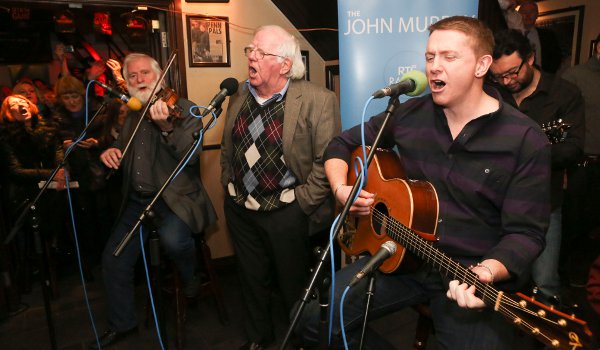 (From L to r): John Sheahan, Paddy Reilly and Damien Dempsey paying tribute to Luke Kelly on the 30th anniversary of his death in January
(From L to r): John Sheahan, Paddy Reilly and Damien Dempsey paying tribute to Luke Kelly on the 30th anniversary of his death in JanuaryThere’s always been a strong reggae influence in your music, particularly the social commentary that flow through say Bob Marley’s songs. Where did that come from?
When I was growing up in the ’80s in Dublin, reggae and ska were absolutely huge in Dublin – it was the main music that people were listening to, rather than rock or trad. It was always reggae on the ghetto blasters in the parks, in the fields. Bob Marley was similar to Luke Kelly.
They were singing for the downtrodden, I suppose. The war up the North was raging at that time, too, and you had people fighting for their civil rights. And Marley was talking about Jamaicans fighting for their rights.
There is a link there, definitely. And when Marley came to Dalymount Park in July 1980, his music spread like wildfire through Dublin.
Speaking of the North... one of the most recent events that brought your native Donaghmede into the media was the murder of local man Alan Ryan, the former Real IRA chief in the south. The subsequent IRA-style funeral procession through Donaghmede made the front pages and was commented on by Minister Alan Shatter. As a Donaghmede man and republican, what did you make of it?
Em... (long pause, laugh) I don’t know how to answer that... I have to be careful; I see some of these heads in the shopping centre... haha... that’s a tough one... I don’t think the funeral impacted all that much on the community.
Although, having said that, I’m not out there looking for a job, so I don’t really know. I think that the address ‘Donaghmede’ might have a bit of a name for itself, now, and it might be harder for younger people to get a job. After Alan Ryan got shot, people in Donaghmede were very much on edge. They were waiting for the Real IRA’s retaliation for Alan Ryan’s murder.
Is it fair to say that you’d be happier seeing young fellas joining Donaghmede Boxing Club rather than the Real IRA?
Yeah, sure, absolutely. I think that politics is the only way that their goal is going to come about. I think cross community activity and getting to know the Loyalists and building bridges with the Loyalist community is the only way that anything is going to change.
The days of the gun are over and dead in the water. That’s my view. A lot of them [Real IRA] are of the mindset that Pádraig Pearse’s way is the only way: that Ireland un-free shall never be at peace.
Certainly, it has [the Alan Ryan/ Real IRA association] left house prices low in Donaghmede. There have been other murders in Donaghmede too, unrelated to the Real IRA. Gang related stuff, drugs related stuff – mostly cocaine.
I don’t know why it happens in Donaghmede and not in some of the surrounding areas, but I still live there and I feel that there’s an awful lot more good than bad in the community.
There’s a great spirit amongst the people there. I find it’s a very friendly place and the neighbours and the people look out for each other. I didn’t find that when I was living in the city. There’s a great sense of community in Donaghmede and, hopefully, it stays like that.
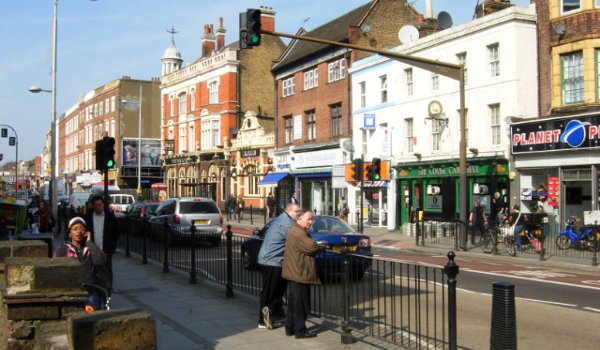 'Young Irish people in London aren’t going to Kilburn like they used to'
'Young Irish people in London aren’t going to Kilburn like they used to'You lived in Kilburn, some years ago. How was that experience?
I loved Kilburn. I found it to be very diverse, especially up the High Road, where you can just sit in a café and watch everyone go by. I didn’t find that many Irish people there, except in the bars where you would find older fellas; guys who went over in the ’40s and ’50s.
Young Irish people in London aren’t going to Kilburn like they used to; they seem to be scattered all over London, which is fine, but I think when the older generation went over to Kilburn – to a specific place – people probably looked after each a bit more.
I’m working with the Camden Irish Centre, doing a couple of gigs there, and they were trying to get the Irish community together, which, as I said, is scattered.
A lot of them [that are scattered] wouldn’t have a sense of Irishness or Irish history. Maybe it’s the way it’s taught in schools... we’re not really taught the real history of Ireland. And now for the Junior Cert, history is not going to be a compulsory subject, which I think is a fuckin’ travesty.
The history of Ireland gives us a sense of why we are who we are; why we think like we think, y’know? And to see the similarities that we have with other colonised people around the world.
What aspect of Irish history stimulates you the most; the period that should, absolutely, be taught to Junior Certs?
(Long pause) Around 1798... 1916... War of Independence... The Cromwellian War, 1641 rising... The Battle of Clontarf... the time before that where there was a seat of learning. People used to come from all over Europe to send their kids to college in Ireland – the monks of Clonmacnoise and all... and the Brehon laws, which are never taught in school.
The Brehon laws were much fairer laws than what we have now. You see the law nowadays and they favour the wealthy. The wealthy never seem to go to jail for all the white-collar crimes. You see what’s gone on here [Anglo Irish, Seanie Fitz, etc.] how many of them actually went to jail?
The Brehon laws brought down High Kings in Ireland. If a High King did you wrong, there’d be a hunger protest on his doorstep and the rest of the community would boycott him; they’d blank him.
2013 marked the centenary of the 1913 lockout and we’re steadily approaching the centenary of 1916. Do we celebrate our history as we should? I felt there was very little done, last year, in the way of public commemorations of the centenary of the Lockout...
There was very little done. I don’t think kids know about James Connolly or the Lockout. They’re not being taught in school, passionately, about who these people were. It’s not in the history texts. We’ve just been homogenised. American culture and the Internet has gripped young people. And people wonder why Irish people aren’t out protesting on the streets.
You see now that fluoride has been in Irish water since the 50s. It’s been tested and experts have found that fluoride makes you docile – maybe it’s the water (laughs)! In most European countries, fluoride has been taken out of the water as it’s seen as toxin waste.
So I’m going to make a stand, now, when they try to charge me for water. Take the fluoride out or you’re not getting my money. I’d be part of the anti-fluoride campaign and the campaign to take the fluoride out of the water. It is poison and the proof is there.
It lowers the IQ in children, it makes you docile, it makes you sick. Experts have made comparisons with the six counties where fluoride isn’t in the water and the difference in the levels of sickness and dementia is off the charts.
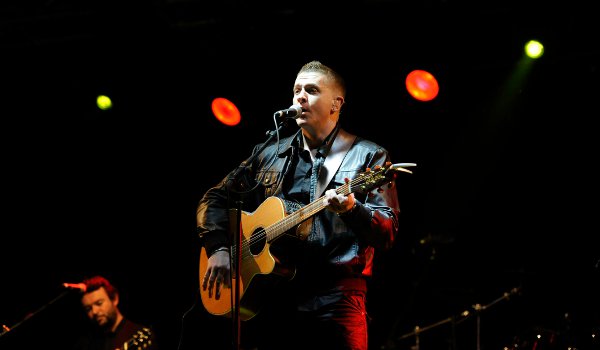 He would play 'Colony', 'Chris & Stevie' and 'Sing All Our Cares Away' to inspire the younger generation about Irish history
He would play 'Colony', 'Chris & Stevie' and 'Sing All Our Cares Away' to inspire the younger generation about Irish historyJust to go back to the point you made about Irish history and how its significance has been lost on the younger generation. If you were to go into a Junior Cert class and play them three of your songs that encapsulate your passion and interest in Irish history, what would those songs be?
Colony, Chris & Stevie, because it’s about being proud of who you are, whether you’re rich or poor, black or white, Catholic, Protestant, Jew, whatever... and maybe... Sing All Our Cares Away... (long pause again...) yep, I think them three, just show kids how singing is therapeutic, y’know?
Ghost of Overdoses is such a vivid song. Our relationship with drugs in Ireland is quite strange. Alcohol has always been a problem. Heroin has been a huge problem, broadly speaking, for the working classes since the 70s and 80s; and cocaine was the Celtic Tiger drug of choice. Does it surprise you that you were able to write Ghosts of Overdoses?
No, not at all. When you’re with people in the inner city, you think, ‘they’re my people’. They go back thousands of years and look at the state of them; that could have been me if my family had stayed in the inner city; if my family had stayed in Ballymun Flats that could have been me.
When I was 12, all of my friends were doing what they could to get out of their heads – sniffing glue, gases, acid... if I had stayed there, I could have ended up on heroin.
I’ve one cousin who’s on the heroin, now, another cousin who died of the heroin; it’s fairly close to me. I think the past is still with us now. People say colonisation, that’s in the past. I think it has affected us, mentally, and I think we [the Irish] still have a lot of demons, Irish men, in particular.
I think women are a bit stronger, but Irish men are very vulnerable. Look at the huge suicide rate that we have here. We’re the first generation to come out of the Catholic Church. The power that they had, even when I was a kid, was huge.
So we’re only after breaking out of that. And the North was huge in the ’80s and ’90s. We’re the first generation that has seen the skeletons come out of the cupboard. You don’t just get over that stuff overnight. All that shit that has gone on over centuries and centuries, from the Roman Catholic Empire to the British Empire.
We’re only just trying to come to terms with all that stuff now. I think we all need counselling. We should probably be all getting free counseling! Stuff is being passed on from generation to generation in the Irish psyche. I think’s why we’re so crazy for the drink and drugs and we have the highest rate of alcoholism.
What’s coming after the Best Of? Are there any artistic ambitions that haven’t been fulfilled?
A couple of duets, maybe. I have another album bubbling up, now, which should be out next year. The next record is definitely taking on an influence from Latin America. I find the history of Latin America fascinating.
But I’m also trying to write a song about how in 1966, in Australia, these Aboriginal Australians walked off this place called Wave Hill, way up in the Northern Territory. They were all stockmen, like cowboys. They were being paid a pittance and being paid much lower wages than the Whites.
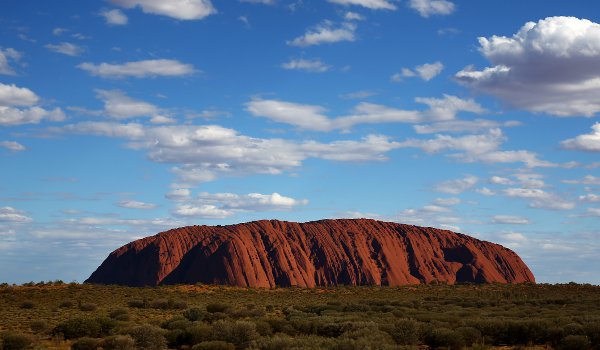 Ayers rock, Northern Territory, Australia: Dempsey wants to write 'more about the world not just Irish stuff'
Ayers rock, Northern Territory, Australia: Dempsey wants to write 'more about the world not just Irish stuff'They walked off and they had a strike for nine years until 1975. They tried to double the wages and they said: ‘No: we want our lands back’. That’s when the Aboriginal Land Rights Movement took off and they started to get some of the land back. So I’m writing a song about that: the anniversary is in 2016.
So I’m trying to write more about the world; have a more global scope rather than just focusing on Irish stuff. That said, I’ll be writing about some Irish focused stuff. Bullying is a big one at the moment, particularly online bullying.
Kids bullying other kids with texts and online messages. I want to write a song that gives a voice to those kids that have been affected by cyber bullying.
So Shepherds Bush is going to be coming up soon. What can fans expect?
Well, the place will be hoppin’, I’ll tell you that now! It’s been a dream of mine to headline Shepherds Bush for a long time. I always maintained that someday I’d go back there and headline. I supported the Hothouse Flowers there, Sinead O’Connor, The Frames.
I’m just going to enjoy these next few years, instead of thinking ‘I wish I was up here, I wish I had that audience, I wish it was easier, financially...’ I’m just going to cherish what I have. I’ve worked hard to get where I am, so anything else is a bonus. I’d like to get the music to more people. I don’t necessarily want more fame, more money...I just want to get the message to more people.
Damien Dempsey plays Bristol Thelka on February 18; Manchester Gorillas (20) and London O2 Shepherds Bush Empire (21). It’s All Good – The Best of Damien Dempsey is out on February 17.
Irish Post readers also have the chance to meet Damien Dempsey by entering our competition.

